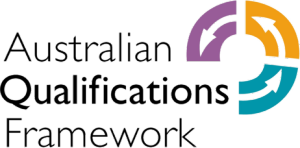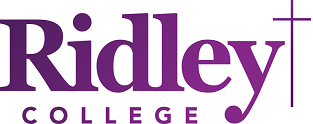
Moore Theological College, otherwise known simply as Moore College, is the theological training seminary of the Diocese of Sydney in the Anglican Church of Australia. The Anglican Archbishop of Sydney holds ex officio the presidency of the Moore Theological College Council.

Avondale University is an Australian private university affiliated with the Seventh-day Adventist Church. It is a part of the Seventh-day Adventist education system, the world’s second largest Christian school system. It has two campuses, the Lake Macquarie campus being the primary campus situated in Cooranbong, New South Wales. The other campus is located at Sydney Adventist Hospital in the Sydney suburb of Wahroonga and is the main campus of the nursing school.
Adelaide College of Divinity (ACD) was an accredited higher education provider offering diploma, associate and bachelor's degrees, graduate diplomas, master and doctoral degrees in ministry, it also was a Registered Training Organisation offering certificates and a diploma.

The Australian Qualifications Framework (AQF) specifies the standards for educational qualifications in Australia. It is administered nationally by the Australian Government's Department of Industry, with oversight from the States and Territories, through the Standing Council of Tertiary Education Skills and Employment. While the AQF specifies the standards, education and training organisations are authorised by accrediting authorities to issue a qualification.

The University of Divinity is an Australian collegiate university with a specialised focus in divinity and associated disciplines. It is constituted by twelve theological colleges from seven denominations and three schools. The University of Divinity is the direct successor of the second oldest degree-granting authority in the State of Victoria, the Melbourne College of Divinity. The university's chancery and administration are located in Box Hill, a suburb of Melbourne in the state of Victoria.

Campion College Australia is a Roman Catholic tertiary educational liberal arts college located at Austin Woodbury Place, Toongabbie in the western suburbs of Sydney, New South Wales, Australia. Named in honour of Saint Edmund Campion, Campion College offers undergraduate studies in the liberal arts and postgraduate studies in Religious Education. The college welcomed its first intake of students in February 2006. The founding president was bioethicist Father John Fleming, and the first graduation ceremony was held in December 2008.

Trinity College Theological School (TCTS) is an educational division of Australia's Trinity College, the oldest residential college of the University of Melbourne. It is also one of the constituent colleges of the University of Divinity. The School provides theological education and shapes men and women for ordained and lay ministry in the Anglican tradition, as well as providing other programs of study, including higher degrees by research.

Ridley College, briefly also known as Ridley Melbourne, is a Christian theological college in the parklands of central Melbourne in the Australian state of Victoria. Established in 1910, it has an evangelical foundation and outlook and is affiliated with the Australian College of Theology and the Anglican Church of Australia. The college offers on-campus and online learning and provides training for various Christian ministries in a range of contexts.

Christ College, formerly known as the Presbyterian Theological Centre, is the theological college of the Presbyterian Church of Australia in New South Wales. It provides theological education for ministry candidates and members of the laity. It is an approved teaching institution of the Australian College of Theology.
The Sydney College of Divinity (SCD) is a consortium of Christian theological educational institutions and Bible colleges based in Sydney, New South Wales, Australia. The college is structured as a federation of member institutions, each of which retains its autonomy and respective theological traditions. Member institutions represent a range of Christian churches.

Tertiary education in Australia is formal education beyond high school in Australia, consisting of both government and private institutions and divided into two sectors; Higher Education and Vocational Education and Training (VET) provided by government-owned TAFEs & private Registered Training Organisations (RTO). Australian Qualifications Framework (AQF), the Australian national education policy, classifies tertiary qualification into 10 levels: level 1 to 4 vocational certificates ; level 5 & 6 undergraduate diploma and advanced diploma; level 6 associate degree; level 7 bachelor degree, level 8 bachelor honours degree & graduate certificates and graduate diplomas; level 9 for master's degree; and level 10 PhD. Most universities are government owned and mostly self-regulated. For other institutes there are two national regulators for tertiary education for registration, recognition and quality assurance of both the "provider institutes" as well as the "individual courses" provided by the providers. Tertiary Education Quality and Standards Agency (TEQSA) regulates institutes which provide education from level 5 or above. Australian Skills Quality Authority (ASQA) regulates institutes which provide education from level 1 to level 6.

Perth Bible College is an evangelical interdenominational Christian tertiary theological institution, located in the Perth, suburb of Karrinyup, Western Australia.
ACAP University College (ACAP) formally The Australian College of Applied Professions is a registered training organisation and higher education provider that specialises in teaching Undergraduate and Postgraduate courses in psychology, counselling, social work, criminology, coaching, management and Law. ACAP is accredited by the Psychotherapy and Counselling Federation of Australia (PACFA), the Australian Psychology Accreditation Council (APAC).

Trinity Theological College, located in Leederville, Perth, Western Australia, is an independent theological college which provides tertiary education within the evangelical and reformed Christian traditions. Its courses are accredited through the Australian College of Theology (ACT), and range from undergraduate diplomas through to postgraduate research degrees.
The Tertiary Education Quality and Standards Agency (TEQSA) is Australia's independent national quality assurance and regulatory agency for higher education.

The College of Law is a school of professional practice for lawyers in Australia and New Zealand. They are also the largest provider of practice-focused legal education in Australasia.
Established in 1988, Macleay College is an Australian accredited higher education provider located in Chippendale, New South Wales. It offers two-year Bachelor degrees in advertising and media, digital media, journalism and business; and one-year Diploma courses in journalism, advertising and media, digital media, marketing and business management, with specialisations available in event management, entrepreneurship, real estate, public relations, travel and tourism or sports business.

Pilgrim Theological College is an Australian theological college and a member college of the University of Divinity. It is part of the Uniting Church in Australia Synod of Victoria and Tasmania's Centre for Theology & Ministry.

The Australian Institute of Management Education and Training Pty Ltd, commonly known as AIM or AIMET, is an Australian education provider. Its courses include business, management and leadership. AIM offers short courses, nationally accredited qualifications, post-graduate higher education and corporate solutions. Campuses and offices are located in New South Wales, Australian Capital Territory, Queensland, South Australia and Victoria.
The Australian Guild of Music is an examination board, tertiary education provider and registered charity. It is based in Melbourne, Victoria and operates in Australia, Malaysia, Singapore and worldwide through online education.















